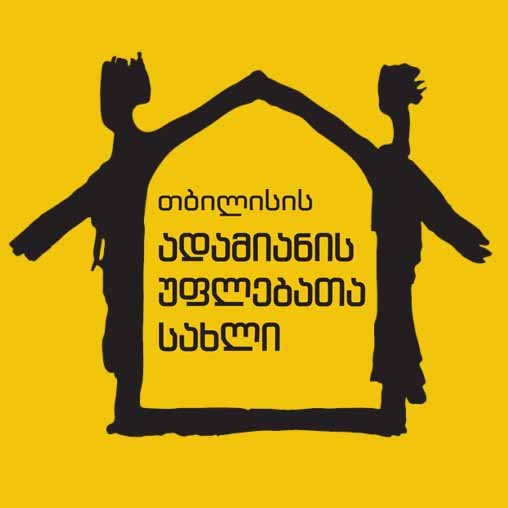News
Monitoring Report regarding the Protest Demonstration of Beka Grigoriadis
13.07.2023
Font size
See PDF
Within the scope of the project – Strengthening Monitoring and Advocacy Capacities for Rights in Georgia, the Human Rights Center (hereinafter, “HRC”) monitors public assemblies and demonstrations taking place in Georgia in order to inform the public about the development of events taking place during the assemblies, as well as about the compatibility of actions carried out by the governmental institutions with international human rights standards.
To this end, from 28 May to 4 June, monitors of the HRC observed the demonstration organized by Beka Grigoriadis with the objective of setting up a tent in a square nearby the building of the Parliament to express a permanent protest. His demand was the release of his son - Lazare Grigoriadis, who was detained and indicted for allegedly committing the offense envisaged by Article 3531 (2) of the Criminal Code of Georgia – namely, attacking a police officer in connection with their official duties – during the protest rallies of 7-8 March. On 31 March, Lazare Grigoriadis was subjected to detention as a measure of restraint; he is currently deprived of his liberty, and the case is being heard before the Tbilisi City Court.
On 28 May, Beka Gigoriadis commenced his permanent protest near the building of the Parliament of Georgia, in the Oliver and Marjory Wardrops Square, which is located more than 20 meters away from the Parliament. The same evening, Beka Grigoriadis attempted to set up a tent in the square, however, several police officers immediately attacked him and seized the tent. The next day, on May 29, Beka Grigoriadis once again tried raising the tent in the square, however, the police officers prevented him from doing so by using the same violent methods. Before seizing the tent, police officers did not call upon him to obey their orders. Moreover, when seizing the tent, which was the property of Beka Grigoriadis, the police officers did not explain to him the procedure of seizure and subsequent return of the item.
On May 29, after seizing the tent of Beka Grigoriadis, the police detained a civil activist, Bezhan Tsvimitidze, who was recording the actions of the police on his cell phone. The activist had disappeared for several hours after his detention. The police did not allow him to contact his family or his lawyer. At around 2 AM, he was placed in the preliminary detention facility of Dusheti – approximately 50 kms away from Tbilisi. According to his lawyer, Bezhan Tsvimitidze’s shirt was torn, and he was physically assaulted during the detention; several injuries were detected on his body. The Ministry of Interior brought administrative charges against Bezhan Tsvimitidze under Article 166 (petty hooliganism) and Article 173 (disobedience to the legal order of the police) of the Administrative Offenses Code of Georgia.
Beka Grigoriadis tried setting up a tent during the night of June 1 as well, but the police officers prevented his efforts anew. Furthermore, on this occasion, not only the tent was seized, but Beka Grigoriadis was detained while unpacking it. It is noteworthy that, prior to doing so, Beka Grigoriadis and some of the protesters used a loudspeaker to inform the police about their intention to raise the tent and requested that a relevant warning be made in case such action is to be disallowed. Without issuing any warnings, police officers attacked Beka Grigoriadis before he started setting up the tent. The Ministry of Internal Affairs brought administrative charges against him under Article 173 of the Code of Administrative Offenses, for the disobedience to a lawful order of the law enforcement officer.
In this regard, at the court hearing held on June 2, representatives of the Ministry of Internal Affairs argued that under the Code of Administrative Offenses, raising tents as a “light structure” caused the arbitrary alternation of the appearance of the Tbilisi municipality. At the same time, notably, the said Code does not define the term “light structure”. Evidently, a tent cannot be considered a light structure or any item that can be used for arbitrary alternation of the municipality’s appearance. Setting up a tent falls within the scope of the constitutionally protected freedom of assembly, provided that it does not result in the blocking of administrative buildings and does not hinder traffic on roads.
Such a justification for disallowing the use of tents serves as a precedent, insofar as the representatives of the Ministry of Internal Affairs have never presented such arguments regarding the legitimacy of the prohibition to raise tents with respect to previous similar cases. Eventually, the Court ruled against Beka Grigoriadis and fined him GEL 2,000 without providing any reasoning for the decision. The judge announced two breaks during the hearing. A substantiated decision of the court has not been handed over to the respondent yet.
After the judgment was rendered against Beka Grigoriadis, he returned to the square behind the Parliament and managed to raise the tent without any obstacles, after previous unsuccessful attempts throughout the course of several days. While many police officers were present at the location, they did not interfere with the process. From 3 June to date, Beka Grigoriadis has been using the tent to express his protest in the square near the building of the Parliament of Georgia.
According to the assessment of the HRC monitors, based on their observations during the protest demonstration, several problems have been identified on the part of law enforcement agents, which might indicate the violation of the freedom of assembly and expression with respect to Beka Grigoriadis and Bezhan Tsvimitidze. Namely, the Constitution of Georgia guarantees the freedom of peaceful assembly and freedom of expression. State authorities may interfere only if the protest becomes unlawful by nature. In exercising their rights, citizens may express protest toward any issue publicly, unarmed – both indoors and outdoors. Moreover, they are entitled to choose the desired form of expressing the protest. The protesters may use tents to have shelter or to attract public attention and that of the target audience by placing their tents in squares and other public spaces – as this was done in the case of Beka Grigoriadis.
The Georgian legislation does not provide any restrictions on raising tents when engaging in peaceful protest. No legal provisions entail prohibitions regarding setting up a tent in a square. Under the Law of Georgia on Assemblies and Demonstrations, it is “prohibited to block the traffic roadway by cars, various structures and/or items”. The purpose of this provision is to ensure that the constitutional rights of other individuals are not infringed, the road traffic is not impeded, or the administrative premises are not blocked with the objective to hinder their work. The law does not forbid setting up tents in squares or places where no threats of impeding road traffic and blocking administrative premises exist. Accordingly, the order of police officers to abstain from erecting the protest camp in the square is ipso facto unlawful.
Under the Code of Administrative Offenses of Georgia, in the event of an administrative arrest, the arresting officer shall inform the arrestee upon placing him/her under arrest, in a form that he/she understands: a) of the administrative offense committed by him/her and the basis of the arrest; b) of his/her right to a defense counsel; c) of his/her right, if desired, to request that the fact of his/her arrest and his/her location be made known to a relative named by him/her, also to the administration at his/her place of work or study. Hence, according to the assessment of the HRC monitors, it is likely that, apart from the violation of the freedom of assembly and freedom of expression, police actions also resulted in the breach of the aforesaid requirements of the Administrative Offences Code.
The HRC is of the opinion that the rights of Bezhan Tsvimitidze were violated when he was not informed upon the detention about the legal grounds for the detention and was deprived of the right to contact his family and his lawyer. Moreover, doubts arise with respect to his detention in the Dusheti facility, whereas the Code of Administrative Offences obliges the detaining officer to immediately transport the detained person to the nearest police station. In addition, when detaining the civil activist Bezhan Tsvimitidze, the police used disproportionate force and unlawfully restricted his freedom of assembly and freedom of expression.
Furthermore, according to the assessment of the HRC monitors, a disproportionate force was also used while seizing the tent of Beka Grigoriadis, and his freedom of assembly and freedom of expression were restricted when there were no grounds for such restriction envisaged by the Constitution of Georgia, or the Law of Georgia on Assemblies and Demonstrations.
Taking into account the aforesaid, we recommend
The Ministry of Internal Affairs:
▪ to refrain from imposing unlawful restrictions on the freedom of assembly guaranteed by the Constitution of Georgia and give the protesters an opportunity to set up and utilize tents for the purpose of expressing their peaceful protest.
The Special Investigative Service:
▪ to ensure timely, thorough, and objective investigation of cases involving violence against protesters exerted by law enforcement officers and instances of abuse of powers.
This publication has been produced with the assistance of the European Union. Its contents are the sole responsibility of the Human Rights Center and do not necessarily reflect the views of the European Union.
News




